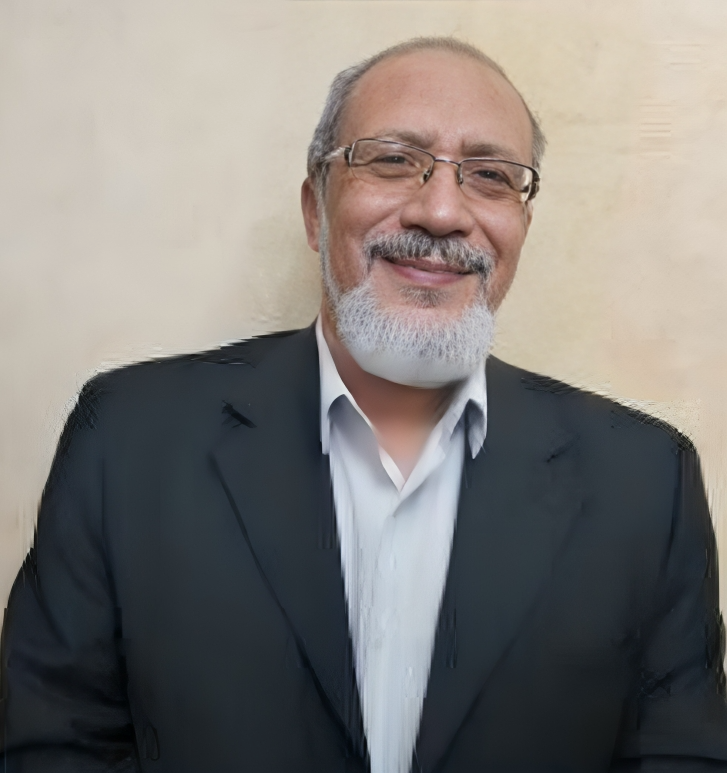Dr. Ghazi Abdel Moneim
Consultant of Internal Medicine, Cardiology, Diabetes, and Endocrinology
Sharyan Al-Hayat Clinics
Specializations and Medical Services:
1. Cardiovascular Diseases:
💓 Coronary Artery Diseases:
Diagnosis and treatment of coronary artery diseases such as arteriosclerosis, vascular blockages, and coronary artery diseases.
💥 Angina Pectoris:
Treatment of conditions caused by inadequate blood flow to the heart muscle, causing chest pain.
🩺 Hypertension:
Diagnosis and treatment of arterial and pulmonary hypertension, along with formulating a therapeutic plan to reduce associated risks.
🔩 Heart Valve Diseases:
Treatment of heart valve problems, including evaluation and post-surgical treatment for valve procedures.
❤️ Dilated Cardiomyopathy:
Treatment of conditions causing heart muscle weakness, which may lead to heart failure.
⚡ Heart Rhythm Disorders:
Diagnosis and treatment of heart arrhythmias like atrial fibrillation, tachycardia, and abnormal slow heart rate.
💉 Endocarditis:
Diagnosis and treatment of inflammation affecting the inner lining of the heart.
2. Cardiological Diagnostic Tests:
🔬 Electrocardiogram (ECG):
An electrical test used to diagnose heart rhythm disorders.
🏃 Stress Test:
A test to assess the heart's response to physical effort or medications.
📊 Echocardiogram:
Ultrasound examination to assess the structure and function of the heart and identify any problems affecting performance.
📅 Holter Monitoring:
A portable device used to monitor heart electrical activity over 24-48 hours to detect unnoticed rhythm issues.
🫀 Coronary Angiography:
A diagnostic and therapeutic procedure for coronary artery blockages, performed via the hand to minimize complications.
🩺 Interventional Valve Expansion:
A non-surgical procedure to widen or repair heart valves using advanced catheter techniques.
3. Acute Heart Conditions Treatment:
🛑 Intensive Care for Cardiac and Chest Conditions:
Providing intensive care for patients suffering from critical heart-related conditions like acute heart attacks or acute heart failure.
⚙️ Cardiac Stents:
Implanting stents to widen coronary arteries in heart attacks or for preventive measures post-surgery.
4. Endocrine and Diabetes-Related Diseases:
🍬 Diabetes Management:
Specialized consultations for managing type 1 and type 2 diabetes, including monitoring blood sugar levels.
⚖️ Endocrine Disorders:
Diagnosis and treatment of glandular disorders, including thyroid, adrenal, and pituitary glands, to ensure hormonal balance and overall health.
💊 Cholesterol and Blood Fat Treatment:
Comprehensive treatment programs to reduce harmful cholesterol and blood fat levels for the prevention of heart diseases.
5. Advanced and Complex Conditions:
🔄 Complex Heart Disease Cases:
Providing advanced treatment for cases requiring sophisticated techniques or complex surgical intervention.
🔧 Post-Stent Implantation Follow-up:
Monitoring patients who have undergone stent implantation in coronary arteries to ensure recovery and prevent complications.
Contact Information:
📍 Address:
6 Tahrir Street, Dokki, in front of Metro El Bahouth Station, 9th Floor, Cairo.
📞 Phone Numbers:
01050594580
01151442233
01555114394
Dr. Ghazi Abdel Moneim provides high-quality medical care in cardiology, endocrinology, and diabetes, using the latest medical techniques and advanced technologies to ensure the best outcomes for patients.

